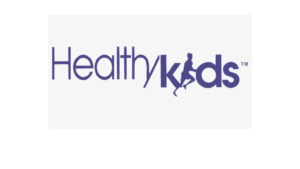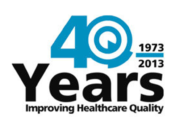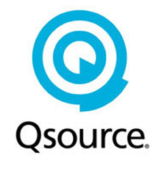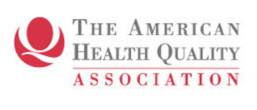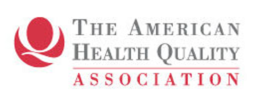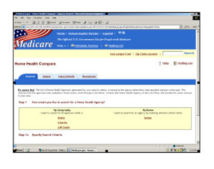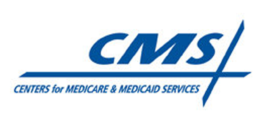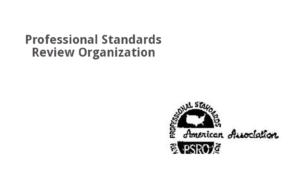Qsource 50th Anniversary History
Qsource welcomed Mary-Lyn Baldauf as the organization’s new CEO. Mary-Lyn has an extensive leadership background with distinguished tenures at several healthcare organizations, particularly in long-term care. She will lead Qsource into the next phase of growth with a foundation based on the core values of integrity; respect for people; diversity, equity and inclusion; and continuous improvement.
Mary-Lyn most recently served as the CEO of Kindred Health Care’s Greensboro LTAC Hospital in North Carolina. During her tenure there, she was responsible for the complete operations of a 101-bed hospital. She successfully guided the facility to exceed earnings goals and achieve the company’s highest and most prestigious Quality Award for three consecutive years.
Prior to that, Mary-Lyn was the Senior National Director of Business Development for the Hospital and Home Health divisions at LifeCare Partners. She led development activities, transdisciplinary team activities, and company initiatives to ensure individualized, patient-centered healthcare for all patients. She also increased measurement and accountability tools for business development strategies and initiatives leading to improved targeting and success across the hospital division.
In her career, Mary-Lyn has also served as the CEO of Unity Home Care, Vice President of Operations for the Home Health Division at Amedisys Home Health Services, and District Sales Manager for Eisai Pharmaceuticals.
Qsource pursues a growth strategy that incorporates direct customer sales to its expanding business portfolio. The initial focus nursing homes, launches a new division and a NH “rapid response team”.
Qsource expands EQR services, adding the state of Indiana in 2021
Qsource began work with two AHRQ academic grantees providing heart health practice facilitation services to physician practices in Alabama and Tennessee.
Qsource earns Indiana Department Health contract to address COVID-19 related health disparities and advance health equity by expanding resources and services offered in seven rural Indiana communities.
Qsource retained both Networks 10 & 12 contracts via competitive bid, earning a new five year contract for each.
COVID-19 introduces a new set of challenges to the healthcare industry. In response, Qsource enhances QIO contract support, and develops resources to support the entire healthcare community. Qsource also launches QsourceKids, creating COVID education materials for children grades K-3.
Qsource adds Arkansas external quality review.
Qsource is contracted to conduct external quality review for the state of Ohio for 2019.
Qsource and Alabama Quality Assurance Foundation partner to earn five year CMS Quality Payment Program (QPP-SURS) Technical Assistance contracts in Alabama and Tennessee.
Qsource and Network Strategies and Innovation (NSI) merged, with dissolution of the NSI entity and brand. Qsource gained five year ESRD Networks 10 & 12 contracts, expanding our footprint into five new states.
Pfizer contracted with Qsource to conduct a special study to determine best practices for pneumococcal immunizations in rural settings and African-Americans.
The regionalizing of the Medicare Quality Improvement Organization saw Qsource partnering with two previous QIOs — IQH in Mississippi and AQAF in Alabama — for the regional QIN-QIO known as atom Alliance. atom Alliance is a five-year, five-state initiative to ignite powerful and sustainable change in healthcare quality. Formed as a partnership between three leading healthcare consultancies, atom Alliance is working to improve quality and achieve better outcomes in health and healthcare and at lower costs for the patients and communities served. Through atom Alliance, AQAF in Alabama, IQH in Mississippi and Qsource in Indiana, Kentucky and Tennessee are carrying out an exciting strategic plan, with programs in place to convene, teach and inform healthcare providers, engage and empower patients, and inspire, share knowledge and spread best practices with communities across the entire healthcare continuum.
Direct Technology has been adopted by 1,000 healthcare professionals across Tennessee.
The EQRO Division is asked to expand the performance improvement project (PIP) evaluation activity and reporting to cover all such studies submitted by the state’s managed care organizations rather than just a sample of one or two each. The Quality Oversight Division also requested assistance with analyzing and reporting data from the long-term support services customer satisfaction survey of TennCare members and added to EQRO responsibilities an annual medical record review of EPSDT services and an audit of sterilizations and specified women’s health services to help ensure compliance with federal and state regulations.
tnREC contracted to work with Medicaid providers to implement EHRs and obtain meaningful use status by 2015.
Qsource begins offering HIT consulting services via the tnREC division with more than 40 organizations in Tennessee seeking the service.
The Tennessee Health eShare Direct Project is implemented and supported by Qsource working in cooperation with the Tennessee Office of eHealth Initiatives. tnREC, a division of Qsource, would oversee technical assistance to healthcare professionals selecting, implementing and using certified Direct Technology to improve the quality and value of healthcare in Tennessee.
In 2012, Qsource earned the Commitment Award in the annual Excellence in Tennessee recognition program administered by the Tennessee Center for Performance Excellence (TNCPE). TNCPE is Tennessee’s only state-wide quality program patterned on the Baldridge Performance Excellence Program, the national standard for recognizing organizational excellence.
QIOs begin 10th Scope of Work (2011-2014).
With the 2014 deadline for nationwide HIT adoption looming, entities known as Regional Extension Centers (RECs) were created. The ONC grant awarded to Qsource to serve as Tennessee’s REC. tnREC was charged with helping physician practices, hospitals and other healthcare service providers integrate HIT)and implement EHRs.
Qsoure-Arkansas obtained QIO-like entity status, allowing for additional contract opportunities in Arkansas.
Qsource-Arkansas begins Management for Medicaid Quality Initiatives (MMQI) for the State of Arkansas.
QIOs begin the 9th Scope of Work (2008-2011) with six main themes: Beneficiary Protection, Patient Safety, Core Prevention, Chronic Kidney Disease, Care Transitions and Prevention.
Qsource-Arkansas begins Therapy Review work for the State of Arkansas.
The Physician Quality Reporting Initiative (PQRI) promotes standardized reporting of clinical health information, targeting all Medicare fee-for-service (FFS) providers with payments based on a 1.5 percent bonus of their fee schedule.
Qsource achieved certification in ISO 9001. ISO 9001 represents a critical element in our overall strategic plan. The purpose of the ISO 9001 certification is to ensure that our project management activities and quality improvement efforts are documented, tracked, and reported. Our ultimate goal is to meet and exceed our customers’ expectations by creating superior services and products. Participation in ISO 9001 and Internal Quality Control (IQC) measurement is part of our corporate strategy and involves corporate, team and individual process evaluation. By creating a system to document and measure each aspect of our contract activity, we obtain valuable knowledge for producing the best product possible for our customers, healthcare consumers and taxpayers.
Qsource expands and opens a second location in Nashville after obtaining a new contract with the Tennessee Department of Finance and Administration, Bureau of TennCare, to serve as the State’s External Quality Review Organization (EQRO). TennCare is the Medicaid managed care program for Tennessee. The new location houses both EQRO and QIO employees.
QIO contract renewed for 8th Scope of Work. Focus is placed on working with providers and practitioners to help redesign care delivery systems, care processes and implement organizational changes that will promote more rapid quality improvement.
The final Compare Care Web site focused on hospitals across the country publicly reporting data to the Hospital Compare site. Qsource led the effort in Tennessee.
Qsource embarked on a statewide awareness campaign aimed at educating patients about mammography, diabetes and immunization. “Be there for that Special Day” was established on the concept that patients innately want to take care of their health so they can enjoy life, family and friends. The campaign consisted of direct mail, educational materials and media outreach. The campaign reached more than 100,000 Medicare beneficiaries in Tennessee. Click on the images to see campaign pieces or listen to the PSA audio files.
CMS created national QIO Support Centers (QIOSC) to provide QIO task teams with educational material, tools, scientific evidence, facilitate communication among practice communities and train all QIOs to help them perform their task. Qsource was designated the Underserved QIOSC and worked with disparity populations to improve healthcare.
Medicare contract renewed for 7th time. New focus of work is quality improvement in nursing homes, home health agencies and hospitals. Emphasis was placed on the launch of public reporting of quality via Compare Web sites. QIOs also begin helping Primary Care Physicians (PCPs) adopt Health Information Technology (HIT) to improve care.
CMS changes PROs to be known as Quality Improvement Organizations (QIOs).
In 2001 Qsource attained a Level II Greater Memphis Association for Quality Baldrige Award.
Dr. Albert Grobmyer becomes CEO. During his career, Dr. Grobmyer has demonstrated an exceptional commitment to organized medicine. A member of the Tennessee and American Medical Associations, he served as president of the Memphis Medical Society and the Memphis Surgical Society. Dr. Grobmyer was a founding member and president of the St. Francis IPA Board and president of the St. Francis Hospital medical staff. In representing the physician community, Dr. Grobmyer has given testimony before Tennessee Gubernatorial Tort Reform and U.S. Senate Committee hearings. Currently, he holds membership on several committees related to healthcare improvement for Tennesseans and serves on the Public Affairs Committee of the UT National Alumni Association. A 1962 UTHSC College of Medicine graduate, Dr. Grobmyer completed a tour of duty as a surgeon for the United States Public Health Service, returning to Memphis where he had a general surgical practice for thirty years.
MSFMC enters into a subcontractor agreement with Health Services Advisory Group (HSAG), the organization serving as the as the External Quality Review Organization (EQRO), providing quality oversight of managed care contractors in Tennessee. It is the first major, non-Medicare contract since the elimination of the Medicaid Prior Authorization contract in 1993.
HCFA launches the Payment Error Prevention Program (PEPP) to monitor billing and payment systems more closely. It becomes part of MSFMC’s responsibility to oversee Tennessee’s PEPP.
Medicare renews its contract with MSFMC. Work begins to focus on a national campaign using standardized quality indicators and local interventions to improve care in six critical disease areas — heart attack, breast cancer, diabetes, heart failure, pneumonia and stroke.
HCFA awards Disadvantage Area Support Peer Review Organization (DASPRO) contract to MSFMC.
To better monitor outcomes in a measurable way, a national Cardiovascular Project became the focus for PROs to help physicians and hospitals improve quality of care for Medicare beneficiaries.
MSFMC begins a fifth contract with Medicare building upon the work performed during the previous contract. While PROs across the country report improvement in two-thirds of more than 2,000 cooperative projects, HCFA is not able to demonstrate any overall improvement or impact on quality. A new vision is need for the national program.
MSFMC begins it’s fourth contract with Medicare focusing on creating partnerships with HCFA, providers, experts and citizens to identify opportunities to improve healthcare for Medicare beneficiaries.
MSFMC loses Medicaid Prior-Authorization contract resulting in significant decrease in staff and revenue.
HCFA launches the Health Care Quality Improvement Program (HCQIP) to move from targeting individual provider errors towards focusing on practice patterns and care outcomes at institutional and national levels. This is a significant milestone in the evoluation of the PRO program and will affect future Scopes of Work.
Qsource adopted a continuous quality improvement (CQI) program in 1991. Over time the program has evolved into a broader recognition of the power of CQI.
Logan Malone hired as CEO. Malone began his career in the medical field after a long military career and a stint as an educator. Malone worked for 10 years at Mid-South Foundation for Medicare Care in Memphis. Prior to that, he was headmaster of a private school in Memphis for two years and earned a doctorate in education from the University of Memphis at age 59. He also was president of a division of First Tennessee Bank of Memphis after retiring from the Navy in 1982 as a rear admiral. During his 30 years in the Navy, he was commander of both ballistic missile and attack submarines and was commander of all NATO submarines in the Mediterranean for two years in the late 1970s. He went on to become the CEO of Florida Medical Quality Assurance in 2001.
Medicare contract renewed for third time with the PRO focus moving toward developing collaborative relationships with providers to create a cooperative program for improving healthcare instead of focusing solely on punishing outliers.
By the late 1980’s, HCFA, PROs and the healthcare industry started to realize that retrospective individual case review was not an effective means of improving overall quality of healthcare. New models of quality improvement were considered by the healthcare industry. The models focused on improving standards by improving care delivery processes, information systems and training resources. The new models require analyzing care patterns and projects to improve specific processes of care.
MSFMC contracted to perform prior authorization for all Medicaid admissions. Prior authorization (PA) is required for certain covered services to document the medical necessity for those services.
Medicare contract renewed with a focus on respective case reviews and the detection of inappropriate use of services.
HCFA issues request for proposal to contract with PROs for utilization and quality control, emphasizing detection of inappropriate utilization and payments under the new PPS system. On July 1, 1984, after implementation of federal legislation, MSFMC became the Peer Review Organization for Tennessee. Contract goals included reducing unnecessary admissions, ensuring that payment rates matched the diagnostic and procedural information contained in the patient records and reviewing patients transferred or readmitted within 7 days of discharge to determine whether readmission was for the same condition as the first hospital visit. Additonally, the PRO contract included at least five objectives: reducing unnecessary readmissions because of substandard care during the prior admission, ensuring the provision of medical services critical to avoidance of unnecessary patient complications, reducing unnecessary surgery or other invasive procedures, reducing the risk of mortality and reducing avoidable postoperative or other complications. The PROs were also expected to develop and analyze Medicare patient data to identify instances and patterns of poor quality.
Prospective Payment System (PPS) designed to contain spiraling healthcare costs and offer financial incentive for providers subject to PPS.
The Peer Review Improvement Act replaces PSROs with Utilization and Quality Control Peer Review Organizations (PROs) and expands Medicare’s quality oversight efforts through the PROs. The PRO program continues to focus on medical necessity and standards of care reimbursed through Medicare. PROs were established to review the quality, necessity, reasonableness and appropriateness of healthcare services furnished to Medicare patients. PSRO regions consolidated into 54 PROs, one for each state and territory.
Leon J. Swatzell was a founder of the MidSouth Foundation for Medical Care and served as CEO from 1973 until retiring in 1991.
On Oct. 8, 1973, the Shelby County Foundation for Medical Care, located in Memphis, was chartered as a non-profit physician peer review organization for the State of Tennessee. The corporation was founded to implement and operate a Professional Standards Review Organization (PSRO) in 13 counties in western Tennessee.
Professional Standards Review Organization (PSRO), an organization formed under the U.S. Social Security Act Amendments of 1972 to review the services provided under Medicare, Medicaid, and Maternal Child Health programs. Review is conducted by physicians to ascertain the need for the program and to ensure that it is carried out in accord with certain criteria, norms, and standards and, in institutional situations, in a proper setting. The PSRO requires that regional organizations be formed to conduct these reviews throughout the nation.
In 1965, under the leadership of President Johnson, Congress created Medicare under Title XVIII of the Social Security Act to provide health insurance to people age 65 and older, regardless of income or medical history. Before Medicare’s creation, only half of older adults had health insurance, with coverage often unavailable or unaffordable to the other half, because older adults had half as much income as younger people and paid nearly three times as much for health insurance. Medicare also spurred the racial integration of thousands of waiting rooms, hospital floors, and physician practices by making payments to health care providers conditional on desegregation.




